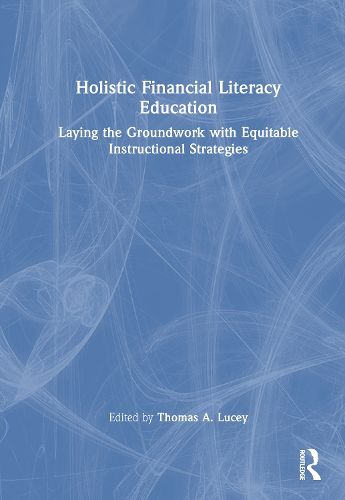Readings Newsletter
Become a Readings Member to make your shopping experience even easier.
Sign in or sign up for free!
You’re not far away from qualifying for FREE standard shipping within Australia
You’ve qualified for FREE standard shipping within Australia
The cart is loading…






Holistic Financial Literacy Education provides a scholarly foundation for a holistic vision of financial literacy, as well as instructional strategies for its teaching.
This text shows pre- and in-service educators why and how we can teach financial literacy to youth within the social studies curriculum. This book employs a holistic approach to demonstrate how teachers can enhance youth financial literacy by addressing the interconnected personal, communal, and societal factors that shape financial understanding. It promotes discussions of the social principles and contexts that inform financial literacy and global human well-being, as well as the social consequences for a reductionist perspective of personal finances. Its eleven chapters cover a plethora of topics from corporate ethics to psychological considerations, to social biases. Combining theory with practice, this book offers classroom strategies, lesson plans, and practical guidance for teaching financial literacy and challenging current societal norms.
$9.00 standard shipping within Australia
FREE standard shipping within Australia for orders over $100.00
Express & International shipping calculated at checkout
Stock availability can be subject to change without notice. We recommend calling the shop or contacting our online team to check availability of low stock items. Please see our Shopping Online page for more details.
Holistic Financial Literacy Education provides a scholarly foundation for a holistic vision of financial literacy, as well as instructional strategies for its teaching.
This text shows pre- and in-service educators why and how we can teach financial literacy to youth within the social studies curriculum. This book employs a holistic approach to demonstrate how teachers can enhance youth financial literacy by addressing the interconnected personal, communal, and societal factors that shape financial understanding. It promotes discussions of the social principles and contexts that inform financial literacy and global human well-being, as well as the social consequences for a reductionist perspective of personal finances. Its eleven chapters cover a plethora of topics from corporate ethics to psychological considerations, to social biases. Combining theory with practice, this book offers classroom strategies, lesson plans, and practical guidance for teaching financial literacy and challenging current societal norms.